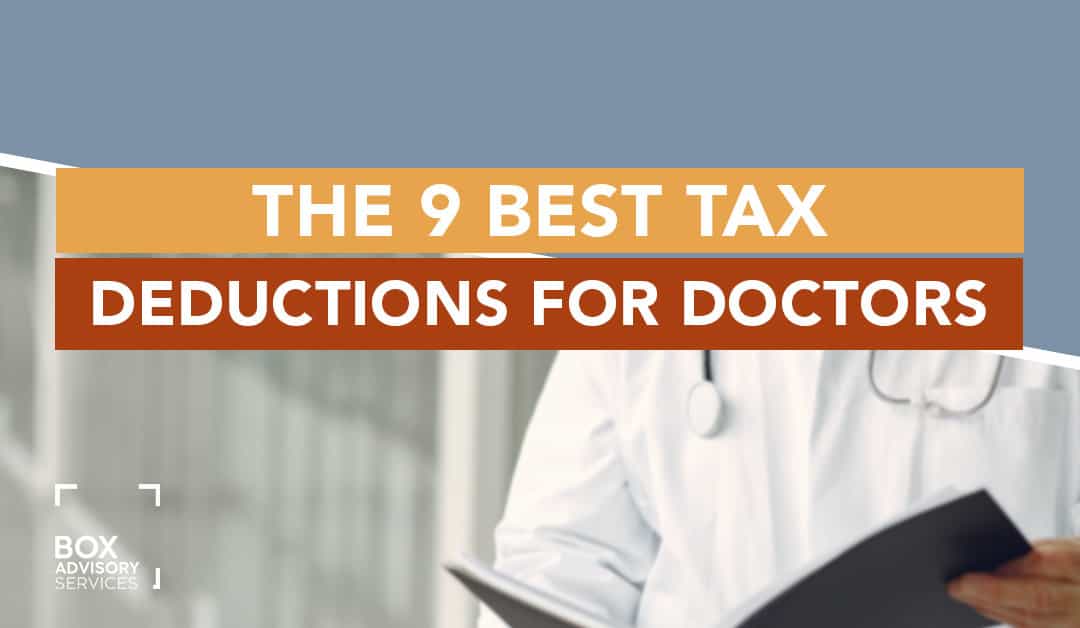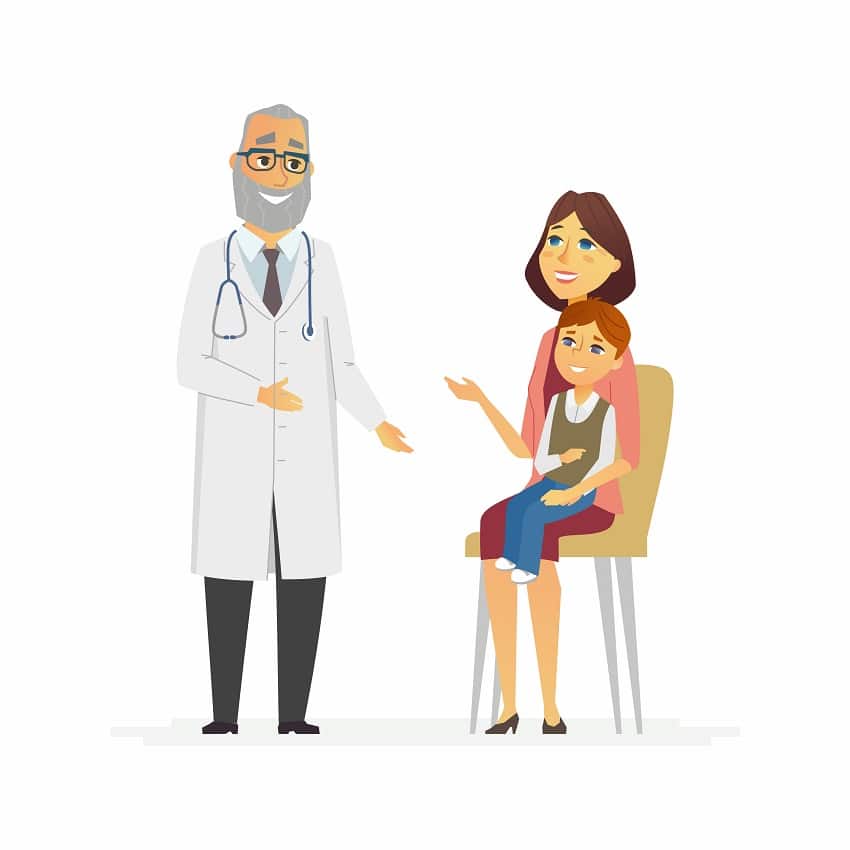
The 9 Best Tax Deductions For Doctors
Doctors are among the highest-earning professionals in Australia. And the higher the income, the higher the marginal tax rate.
But did you know that as a medical professional, you’re eligible for a pretty long list of deductions?
Unfortunately, however, many doctors are missing out because they don’t know what tax deductions they can claim.
So, here’s a list of the best tax deductions for doctors that could help lower your taxable income.

1. Self-Education Expenses
While you may have to invest in ongoing education costs to maintain your medical registrations, the Australian Tax Office (ATO), thankfully, considers self-education expenses as a work-related expense.
This means that you can claim all your education costs as a tax deduction, including course fees and course material.
However, you can only claim education expenses if the course directly relates to your current position. For example, if you’re wanting to move from being a nurse to a surgeon. In other words, you can’t claim education expenses incurred while trying to get a new job.
2. Motor Vehicle Expenses
Suppose you have to drive between different workplaces on the same day. For example, you drive from your doctor’s room to the hospital to perform a minor procedure. If that’s the case, you’re entitled to claim a deduction for the cost of that trip (including parking costs and tolls) regardless of whether you used your own vehicle or whether you made use of public transport.
Generally, the ATO won’t allow you to claim a deduction for the car expenses incurred for trips between your home and your doctor’s room.
However, if you’re required to carry bulky equipment between home and work, there are some limited circumstances in which the ATO will allow you to claim these expenses, including:
- you need the equipment to complete your doctor duties,
- the equipment could only be transported via a vehicle because it’s bulky, and
- you were unable to store the equipment safely at your workplace.
When it comes to claiming transport expenses, you need to keep a logbook – especially if you use your own vehicle. This way, you can identify which expenses are work-related and which expenses were related to your personal use of the vehicle.
3. Medical Registrations and Journal Subscription Fees
Professional membership fees with medical associations such as the Australian Medical Association are considered a tax-deductible expense.
You can also claim a deduction for the cost of renewing your practising certificate each year and your medical registration fees.
Beyond medical memberships, medical practitioners need to stay up-to-date on all the latest research and breakthroughs in their field, which is why they often subscribe to journals or other publications associated with their medical specialty.
These subscription fees are considered tax deductions for doctors.

4. Tax-Deductible Uniform Expenses
The cost of buying, hiring, mending or cleaning certain uniforms that are unique and distinctive to your job, like an obligatory doctor’s uniform are all considered tax-deductible expenses for doctors.
You may also be eligible for tax deductions based on protective clothing you must wear at work, such as surgical caps or lab coats.
The ATO won’t, however, allow you to claim a tax deduction for ordinary clothing that you wear to work. So, the jeans that you wear under your white doctor’s coat aren’t considered uniform tax deductions for doctors.
5. Travel Expenses
Medical professionals who have to travel extensively for their work can also claim tax deductions. You might be able to deduct airfare, lodging expenses and conference materials if you travelled to a remote location.
However, you can’t claim a travel expense deduction if the work-related activity was an added-on component to a personal trip. For example, suppose you travelled to the Gold Coast for a family holiday but happened to attend a one-day conference for medical professionals while you were there. In that case, you can’t suddenly claim your travel expenses as a work-related tax deduction.
So, you’ll need to prove that the travel expenses are directly related to you fulfilling your doctor duties.
6. Income Protection Insurance and Professional Indemnity Insurance
As a medical professional, you’re entitled to claim a tax deduction for two types of insurance protection, including professional indemnity insurance and income protection insurance.
7. Tax-Deductible Equipment and Supplies
Medical professionals can claim tax deductions for any equipment or tools they need to carry out their jobs. For example, a doctor’s stethoscope and briefcase to transport patient files are all considered work-related equipment, and its cost can be claimed as a tax deduction.

8. The Work-Related Portion of Mobile Phone Expenses
Suppose you’re a medical professional that does a lot of remote work and doesn’t have access to an office telephone. If that’s the case, you’ll likely use your personal phone to make work calls.
Thankfully, the ATO allows doctors to claim a tax deduction for the work-related portion of their phone expenses, provided that their employer doesn’t already cover their telephone bill.
9. Medical Professional Home Office Expenses
Similar to the phone expense deduction, if you’re a medical professional that mostly works remotely, you might have a dedicated space in your home to do some office admin work such as invoices and patient file updates.
You can claim the following home office expenses as a doctor tax deduction:
- lighting,
- heating and cooling,
- internet usage, and
- depreciation on office equipment and furniture such as computers and office chairs.
Key Takeaways
The Australian Taxation Office allows doctors to claim a wide range of tax deductions each year.
However, to claim these work-related expenses, you’ll need to prove that:
- you incurred the expense yourself (in other words, you spent the money),
- the expenses you claim is directly related to you carrying out your duties as a doctor, and
- you have accurate records to prove that you’ve incurred the expenses.
What’s more, you’ll need to distinguish between what part of the expense was used for personal use and what part of the expense was related to work – especially with vehicle and mobile expenses.
If you’re looking for some guidance, our team of tax experts at Box Advisory Services can help you navigate through submitting your tax return and maximising all the available tax deductions for doctors. To see how a registered tax agent can help calculate your tax deductions and get your tax affairs in order, book a free consultation with us today.
Remember: make sure you always keep receipts, invoices, and any other documents relating to any expenses incurred that directly relate to you earning an income – you can’t claim any of the nine listed tax deductions for doctors without proof.
Disclaimer:
Please note that every effort has been made to ensure that the information provided in this guide is accurate. You should note, however, that the information is intended as a guide only, providing an overview of general information available to property buyers and investors. This guide is not intended to be an exhaustive source of information and should not be seen to constitute legal, tax or investment advice. You should, where necessary, seek your own advice for any legal, tax or investment issues raised in your affairs.



